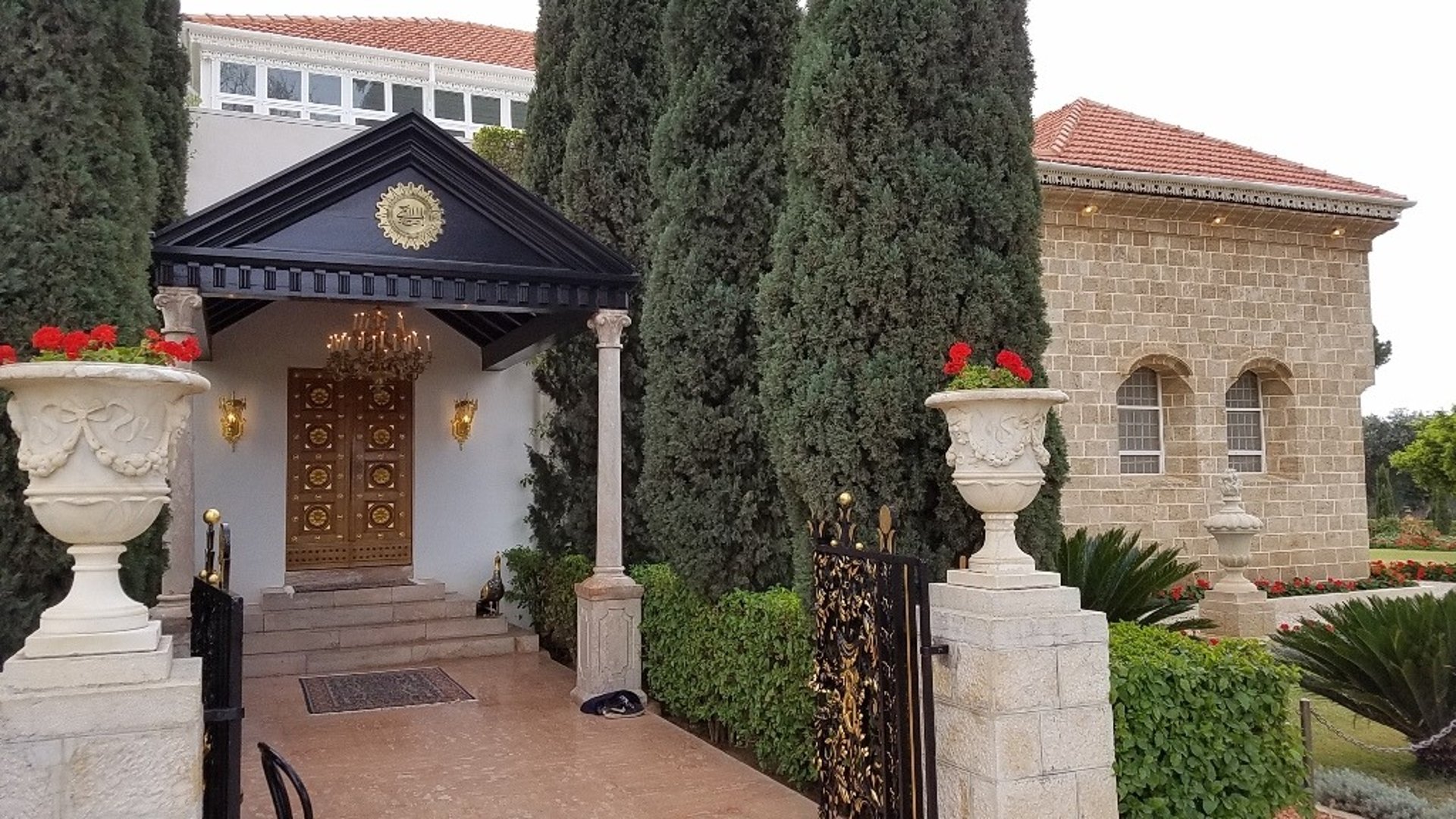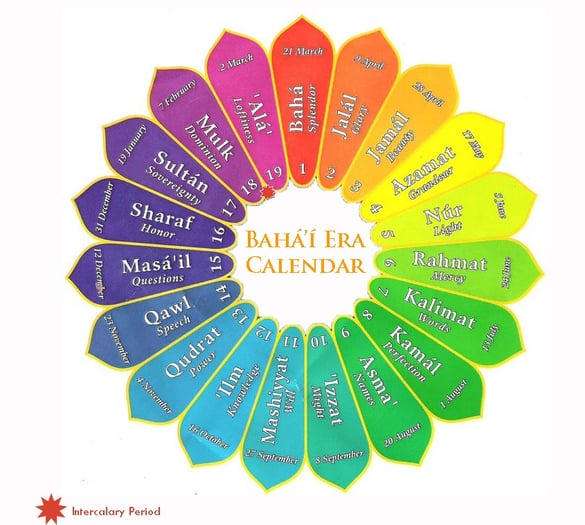
Baháʼí Holy Days:
First day of Ridvan (Declaration of Baha'u'llah), April 21, 1863
Ninth day of Ridvan, April 29
Twelfth day of Ridvan, May 2
Declaration of the Bab, May 23, 1844
Ascension of Baha'u'llah, May 29, 1892
Martyrdom of the Bab, July 9, 1850
Birth of the Bab, October 20, 1819
Birth of Baha'u'llah, November 12, 1817
Feast of Naw-Ruz (Baha'i New Year), March 21
Baháʼí Nineteen Day Feast:
Once in every nineteen days, meetings are held in every locality by the Bahá’í community. Known as the “Nineteen Day Feast”, these gatherings serve as the bedrock of Bahá’í community life.
The Feast was ordained in the Kitáb-i-Aqdas by Bahá’u’lláh; He counseled His followers to meet once every Bahá’í month, even if “only water be served”. “This feast”, states ‘Abdu’l-Bahá, “is held to foster comradeship and love, to call God to mind and supplicate Him with contrite hearts, and to encourage benevolent pursuits.” “It rejoiceth mind and heart”, He writes in another passage. “If this feast be held in the proper fashion, the friends will, once in nineteen days, find themselves spiritually restored, and endued with a power that is not of this world.”
Although the Nineteen Day Feast may assume different outward forms in different parts of the world, reflecting the conditions and customs of the local community, its program always includes the reading of prayers, a portion devoted to sharing news and consulting on community affairs, and a portion for socializing and fellowship. The Nineteen Day Feast provides an opportunity for the community to gather and discuss its affairs, and for the Local Spiritual Assembly—the local governing council of the Bahá’í community—to keep abreast of the concerns of the community and strengthen its relationship with it. Consultation at these regular gatherings also creates a space for growing social consciousness to find constructive expression and often leads to the emergence of small groups engaged in action.


"The earth is but one country, and mankind its citizens." - Bahá'u'lláh
© 2025. All rights reserved.
